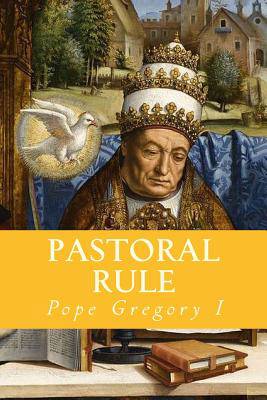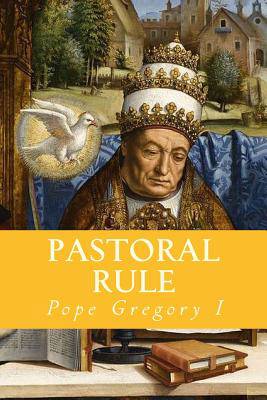
- Retrait gratuit dans votre magasin Club
- 7.000.000 titres dans notre catalogue
- Payer en toute sécurité
- Toujours un magasin près de chez vous
- Retrait gratuit dans votre magasin Club
- 7.000.0000 titres dans notre catalogue
- Payer en toute sécurité
- Toujours un magasin près de chez vous
Description
Liber Regulae Pastoralis or Regula Pastoralis (The Book of the Pastoral Rule, commonly known in English as "Pastoral Care", a translation of the alternative Latin title Cura Pastoralis) is a treatise on the responsibilities of the clergy written by Pope Gregory I around the year 590, shortly after his papal inauguration. It became one of the most influential works on the topic ever written. The title was that used by Gregory when sending a copy to his friend Leander of Seville. The text was addressed to John, the bishop of Ravenna, as a response to a query from him. Gregory later revised the text somewhat. The personal, intellectual and moral standards Gregory enjoined did not at all points closely reflect 6th century realities: for example, one letter from the Bishop of Cartagena (Book II, letter 54 in Gregory's collected correspondence) praises the book, but expresses a reserve that it might prove beyond ordinary capacities. The influence of the book, however, was vast. After reading the Regulae, the Byzantine emperor Maurice directed that it be translated and distributed to every bishop within the empire (Demacopoulos). Indeed, among the works of all the Latin authors in the patristic period, Gregory's alone were translated into Greek during his own lifetime. In the West, the book also retained its significance and broad dissemination. That the book had been taken to England by Augustine of Canterbury- who was sent to the Kingdom of Kent by Gregory in 597- was noted in the preface to it written by Alfred the Great, who in the late 9th century translated it into Old English as part of a project to improve education in Anglo-Saxon England. In addition to details of his translation methodology, the extensive preface describes the rationale and intentions behind the project: even hundreds of years after it was written, the work was still seen as the most essential guide for pastors, and Alfred wished every bishop in his kingdom to have a copy for the benefit of the less-educated clergy.
Spécifications
Parties prenantes
- Auteur(s) :
- Editeur:
Contenu
- Nombre de pages :
- 282
- Langue:
- Anglais
Caractéristiques
- EAN:
- 9781783362493
- Date de parution :
- 05-06-13
- Format:
- Livre broché
- Format numérique:
- Trade paperback (VS)
- Dimensions :
- 152 mm x 229 mm
- Poids :
- 381 g

Les avis
Nous publions uniquement les avis qui respectent les conditions requises. Consultez nos conditions pour les avis.






